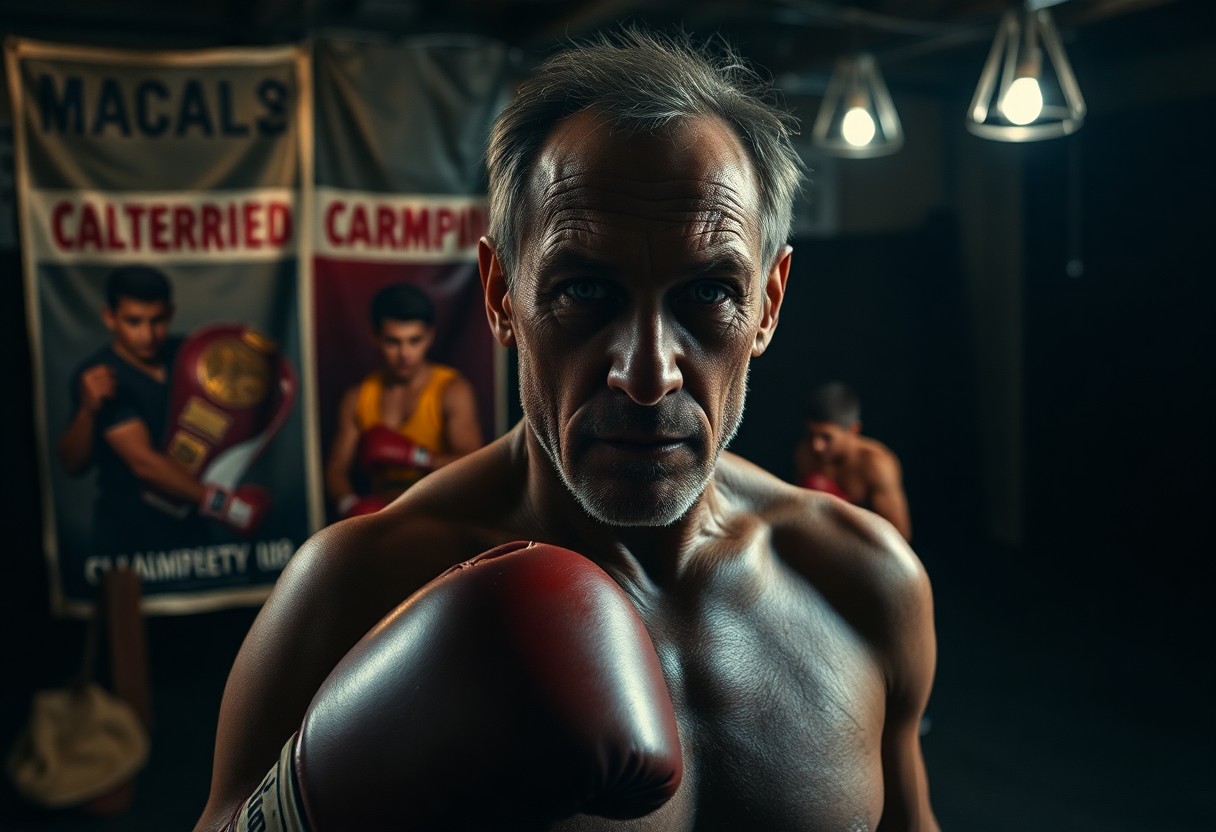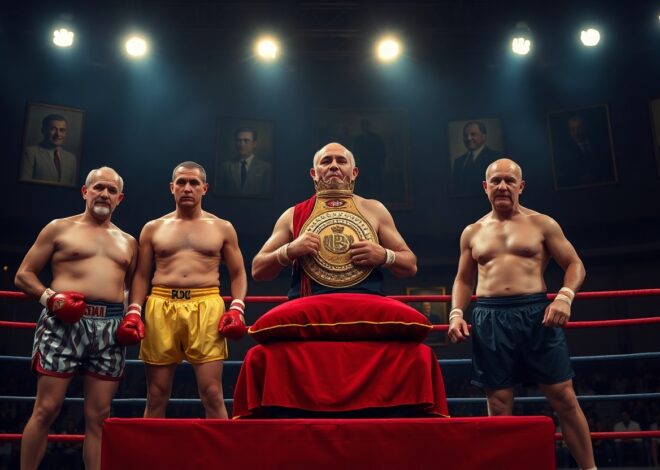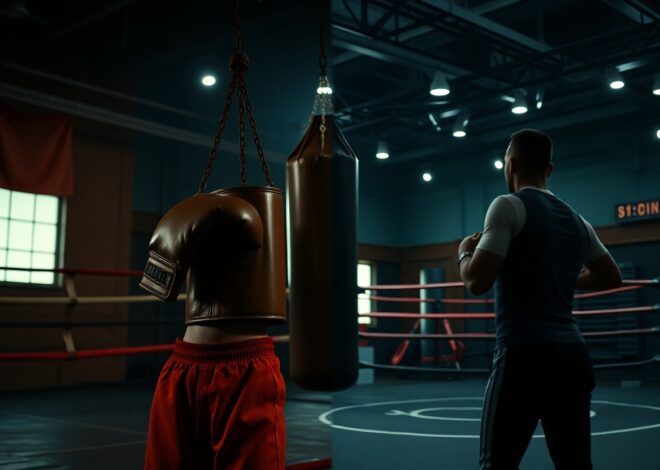
Legacy In The Ring: What Makes A True Boxing Legend?
This guide investigates into the defining qualities that distinguish a true boxing legend from mere champions. A true legend possesses not only exceptional skill and technique but also unwavering determination and the ability to inspire others. Their impact extends beyond the ring, shaping the sport’s history and culture. By examining the balance of achievement, character, and influence, we unveil the vital elements that contribute to a boxer’s lasting legacy.
Types of Boxing Legends
Boxing legends can be categorized into distinct types, each showcasing unique attributes and achievements. Understanding these categories helps illustrate what sets legends apart from mere champions. These types encompass champions, underdogs, innovators, and transcendent figures who have transformed the sport and inspired countless others.
- Champions
- Underdogs
- Innovators
- Transcendent Figures
- Regional Icons
This classification speaks to the diverse impacts these fighters have made in the world of boxing.
Champions
Champions represent the pinnacle of success in boxing, typically showcasing extraordinary skill and discipline. They have won prestigious titles and solidified their legacies through memorable fights. Legends like Muhammad Ali and Mike Tyson exemplify the excellence demanded of champions, displaying remarkable tenacity and charisma in the ring.
Underdogs
Underdogs possess an inspiring ability to overcome daunting odds, making their stories resonate deeply with fans. These fighters often enter bouts as clear underdogs, only to defy expectations and achieve victory against more favored opponents. They embody resilience, determination, and heart, showcasing that greatness lies in more than just titles.
Profiles of famous underdogs, such as Rocky Balboa in fiction or James Braddock in reality, highlight how these fighters captured public admiration and respect through sheer tenacity. Underdogs often emerge from challenging circumstances or lesser-known backgrounds, showcasing the grit required to rise through adversity. Their journeys remind fans that every fighter has a story worth telling and that triumph is possible, regardless of initial expectations.
Key Factors in Defining Legacy
Several key factors contribute to the legacy of a boxing legend. These elements not only highlight an athlete’s skill but also their influence within the sport and beyond. Notable components include title wins, impact on the sport, fan engagement, and longevity in competition. Each aspect shapes not only how they are remembered but also sets the standards for future generations. After examining these factors, it becomes clear why some boxers achieve legendary status.
Title Wins
Title wins play a pivotal role in cementing a boxer’s legacy. Achieving championships across multiple weight classes or unifying titles showcases a fighter’s versatility and skill. Legends like Muhammad Ali and Sugar Ray Leonard not only captured numerous belts but did so against the best of their era, amplifying their stature in the sport.
Impact on the Sport
The impact a boxer has on the sport transcends their win-loss record. Legends often set trends, inspire new generations, and elevate the sport’s profile globally. For instance, Mike Tyson brought raw power and charisma, attracting fans and media attention, revitalizing interest in boxing during the 1980s. Their influence shapes how boxing is perceived and follows them long after they retire.
This impact is evident in how legends like Floyd Mayweather Jr. and Ronda Rousey changed promotional strategies and athlete branding. Their ability to engage with a diverse audience through social media helped modernize fan interaction, making them not just fighters but cultural icons. As such, the ripple effects of their careers continue to inspire future athletes, ensuring that their legacies endure well beyond their time in the ring.
Pros and Cons of a Legendary Status
| Pros | Cons |
|---|---|
| Increased marketability and sponsorship opportunities | Unrealistic expectations from fans and media |
| Legacy secured through historical recognition | Pressure to maintain performance levels throughout career |
| Possibility of financial stability post-career | Higher scrutiny of personal life and choices |
| Inspiration to upcoming boxers and athletes | Comparative analysis with other legends can overshadow achievements |
| Access to exclusive events and networks | Potential mental health strains due to constant spotlight |
Pros
A legendary status in boxing often leads to greater marketability, allowing fighters to attract lucrative sponsorships and endorsements. This recognition not only cements their place in history but also provides a pathway to financial security, ensuring that their contributions to the sport are rewarded both during and after their competitive years.
Cons
Conversely, the weight of iconic status brings significant challenges. Boxers face unrealistic expectations from fans and media, leading to intense pressure to continuously perform at peak levels. This scrutiny can extend to their personal lives, where any misstep is magnified.
The pressures of maintaining a legendary status can significantly affect mental well-being. Boxers frequently encounter criticism and comparison to their peers, often overshadowing their own accomplishments. Additionally, the incessant public attention may lead to burnout or stress-related issues, challenging their ability to enjoy their successes in peace. A balanced legacy requires navigating these pitfalls while celebrating triumphs.
Tips for Aspiring Boxers
- Focus on building strong fundamentals
- Invest in quality coaching and mentorship
- Practice regularly to improve technique
- Maintain physical fitness and stamina
- Cultivate a positive mindset
The journey to becoming a boxing legend requires dedication and hard work.
Building Skills
Developing vital skills is vital for aspiring boxers. Focus on refining your footwork, mastering various punches, and implementing defensive maneuvers. Regular practice with a coach will help you identify weaknesses and areas for improvement. An impressive skill set not only boosts your performance but also builds confidence in the ring.
Understanding the Mental Game
The mental aspect of boxing is just as important as physical capability. Aspiring boxers must learn to manage stress, maintain focus, and develop resilience. Visualization techniques and positive self-talk can enhance mental preparedness, allowing fighters to perform at their peak under pressure.
In the ring, emotional resilience can often be the deciding factor in a match. Successful boxers possess the ability to stay calm, composed, and strategic, even when faced with adversity. Fostering a strong mental game can involve visualization exercises, mindfulness practices, and connecting with sports psychologists to build coping strategies for high-stakes situations. The blend of mental fortitude and physical ability distinguishes champions from those who falter when challenged.
Step-by-Step Path to Boxing Greatness
| Key Steps | Description |
|---|---|
| 1. Master the Basics | Solidifying fundamental skills like footwork and punch techniques lays the groundwork for advanced tactics. |
| 2. Spar Regularly | Engaging in frequent sparring sessions helps to translate training into real fight scenarios. |
| 3. Analyze Fights | Studying footage of both personal performances and those of successful boxers aids in understanding effective strategies. |
| 4. Set Clear Goals | Establishing short and long-term objectives provides direction and benchmarks for progress. |
| 5. Maintain Discipline | Consistent adherence to training schedules and dietary plans fosters steady improvement. |
Training Regimens
Training regimens for aspiring boxers are intensive and varied, typically combining strength conditioning, cardio, and technique drills. This multifaceted approach ensures boxers not only develop their skills but also build stamina and resilience. Professional fighters often engage in workouts that can last up to four hours a day, including running, jumping rope, shadowboxing, and heavy bag training.
Strategic Fight Planning
Effective fight planning involves comprehensive study and preparation against opponents to exploit their weaknesses while accentuating one’s strengths. Celebrated boxers, such as Muhammad Ali and Floyd Mayweather Jr., were known for their meticulous preparation, which included analyzing past fights, understanding an opponent’s tactics, and adapting their own strategies accordingly.
A sound strategic plan considers various fight scenarios, including possible tactics the opponent may employ. Boxers often create specific strategies tailored to their opponent’s style, whether they are facing a defensive fighter or a powerful puncher. This analysis allows them to visualize counter-attacks and set traps, which can be the difference between winning and losing. Specifics may include anticipating the range of punches thrown, evaluating defensive maneuvers, and predicting tendencies based on past performances. Such preparation not only enhances confidence but transforms the fight into a mental chess match, where victory is often achieved before the first bell rings.
The Role of Fan Engagement
Fan engagement plays a pivotal role in cementing a boxer’s legacy, transforming them from just competitors into culturally significant figures. The connection forged with fans not only enhances marketability but also shapes public perception, creating a loyal following that can support the athlete long after their career ends.
Building a Fanbase
Creating a strong fanbase begins with authenticity and relatability. Boxers who share personal stories, journey struggles, or victories resonate more with audiences. Social media platforms amplify this relationship, allowing fighters to interact directly with followers, thus solidifying their status as both athletes and community figures.
Media Interaction
Effective media interaction can elevate a boxer’s legacy by expanding their reach beyond the ring. Engaging with journalists and participating in numerous interviews can shape their narrative and public image.
Boxers like Floyd Mayweather have mastered media interaction, often using it as a tool to maintain their presence in the spotlight. Regularly making headlines through press conferences, social media posts, and interviews, they not only promote upcoming fights but also craft their persona. Increased visibility can lead to sponsorship deals, making media savvy an imperative part of building a lasting legacy. Moreover, by responding directly to public commentary and addressing controversies, boxers can control their narrative and engage their audience on multiple levels. This relationship helps elevate their status, ensuring they remain relevant even after retirement.
To wrap up
Following this exploration, it is clear that a true boxing legend is defined not just by championship titles and victories but also by their impact on the sport, the enduring influence on future fighters, and the legacy they leave behind. Iconic qualities such as resilience, sportsmanship, and dedication to the craft set these athletes apart, ensuring that their stories resonate well beyond the ring. Ultimately, the true measure of greatness in boxing resides in both the athlete’s performance and the inspirational legacy they cultivate within the sport and its community.
FAQ
Q: What are the key qualities that define a true boxing legend?
A: A true boxing legend is defined by exceptional skills, a significant impact on the sport, longevity in their career, and the ability to inspire future generations. These qualities combined create a lasting legacy that resonates with fans and aspiring boxers alike.
Q: How does a boxer’s impact on the sport contribute to their legendary status?
A: A boxer’s impact on the sport includes their influence on fighting styles, contribution to boxing culture, and ability to draw attention to the sport. Legends often pave the way for changes in training, promotion, and the overall perception of boxing, ensuring their legacy endures.
Q: In what ways do extraordinary achievements influence a boxer’s legacy?
A: Extraordinary achievements such as championship titles, undefeated records, and memorable fights play a pivotal role in shaping a boxer’s legacy. These accomplishments not only highlight their talent and dedication but also elevate their status among peers, creating a hallmark for future fighters to aim for.



